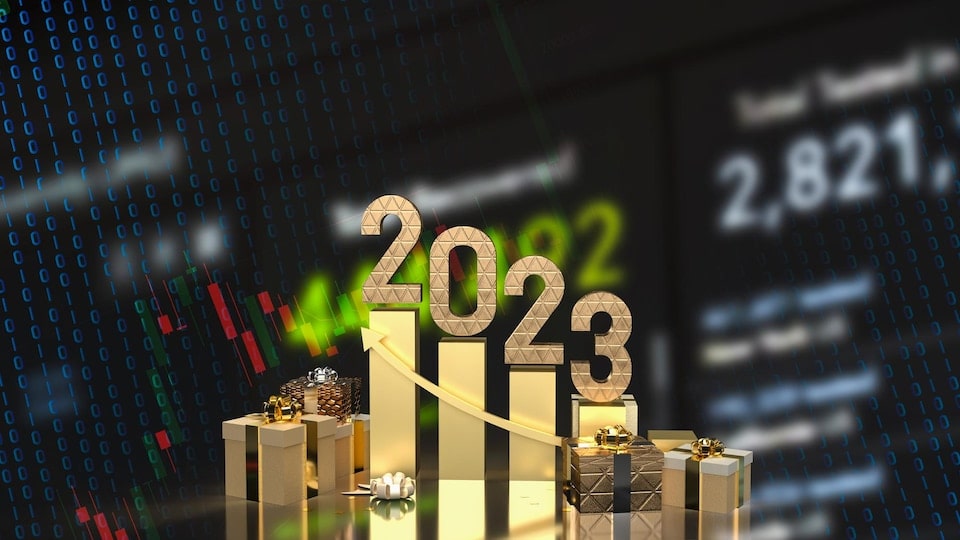Table of Contents
- Introduction – Role of Central Banks in Forex Market
- Understanding Central Banks’ Position in Forex Markets:
- Predictions for 2023
- Conclusion – Who Controls the Forex Market:
Introduction – Role of Central Banks in Forex Market
Forex or foreign exchange (forex) market is among the largest and most liquid market for finance, exchanging trillions in daily trades. But, the question that arises is “Who Controls the Forex Market?”, “Do Central Banks Play any Role in Forex Markets?” and “What are the predictions in 2023?”.
Lets get deep dive into the facts. Central banks play a crucial part in this – their policies immensely affect exchange rates and global currencies’ overall stability. As we enter 2023, we must examine potential predictions and expectations regarding central banks in forex markets. Here, we explore vital influences governing bank actions and possible scenarios that might shape the forex landscape in 2023.
Understanding Central Banks’ Position in Forex Markets:
Central banks are essential in overseeing monetary policies and maintaining price stability across nations. Their power lies in issuing and controlling currency supply – giving them significant influence in forex trading markets. Key ways that central banks impact forex markets:
Interest Rates:
Central banks use interest rates to combat inflation and stimulate economic development. As a result, central banks that raise interest rates often attract foreign investors searching for higher returns. Conversely, lower interest rates could turn off foreigners leading to its devaluation.Open Market Operations:
Central banks are the one who controls the forex market because they use open market operations, or “open market purchases and sales,” to manipulate money supply by purchasing government securities on open markets and purchasing more for themselves, increasing liquidity while potentially depreciating currency values. Selling government securities has the opposite effect of buying them – decreasing liquidity while potentially strengthening currency value.Foreign Exchange Reserves:
Central banks keep foreign exchange reserves to manage and stabilize forex markets by purchasing or selling foreign currencies to influence exchange rates and prevent excessive volatility. Resources provide an essential buffer in times of economic volatility or currency crises.
Predictions for 2023

Gradual Normalization of Monetary Policy:
As global economies emerge from the COVID-19 pandemic, central banks may gradually adjust their monetary policies. This process could involve raising interest rates slowly in some economies where inflationary pressures have begun building. Higher interest rates could result in currency appreciation for nations with solid economic fundamentals, especially where lending rates remain elevated.Divergence in Central Bank Policies:
At any one time, central banks in different regions may take different policies depending on economic circumstances in their countries or regions. For example, in the US, it appears likely that the Federal Reserve will taper off its bond-buying program while increasing interest rates. Comparatively, central banks in Europe and Japan tend to pursue simulative policies to support their respective economies. Therefore, leading to potentially unstable currency exchange rates and volatility.Focus on Inflation:
Inflation has emerged as an increasing issue for central banks worldwide. Therefore, in 2023, central banks should closely track inflationary pressures and implement appropriate management plans accordingly.Technological Advancements and Digital Currencies:
Central banks are exploring digital currencies and blockchain technology more extensively, and 2023 may see further progress in central bank digital currencies (CBDCs), with some countries initiating pilot programs or complete implementation plans of CBDCs. CBDCs could significantly disrupt forex markets by altering cross-border transaction dynamics and exchange rate mechanisms.Geopolitical Factors:
Geopolitical events and trade tensions can wreak havoc with forex markets, creating volatility and instability across global currency exchanges in 2023. Central banks will closely monitor these factors to maintain currency stability by taking necessary measures.
Conclusion – Who Controls the Forex Market:

Central banks play an essential part in forex markets, and their policies have an incredible effect on currency values.
As we look ahead to 2023, central banks should aim at gradually normalizing monetary policy. While, managing inflationary pressures and exploring technological advancements through CBDCs. Unpredictability from geopolitical events and policy differences among central banks, could introduce volatility into forex markets in 2023. So traders and investors must stay aware and adapt strategies appropriately to navigate an ever-evolving landscape
Note: You can also contribute to our educational content by visiting our “Write for us” section. We will appreciate your contribution.

